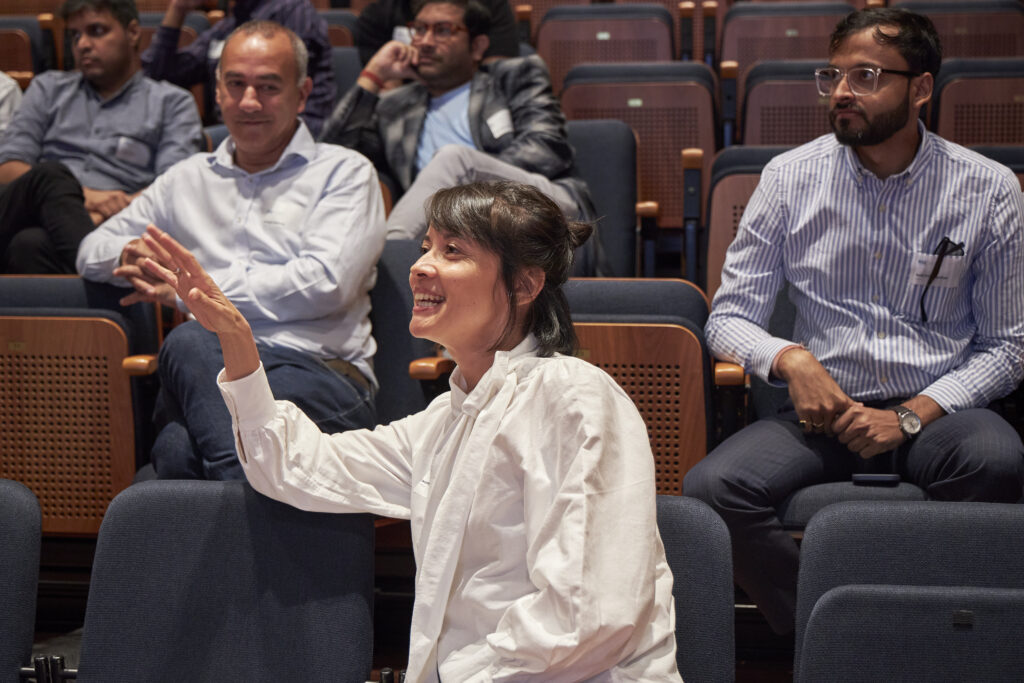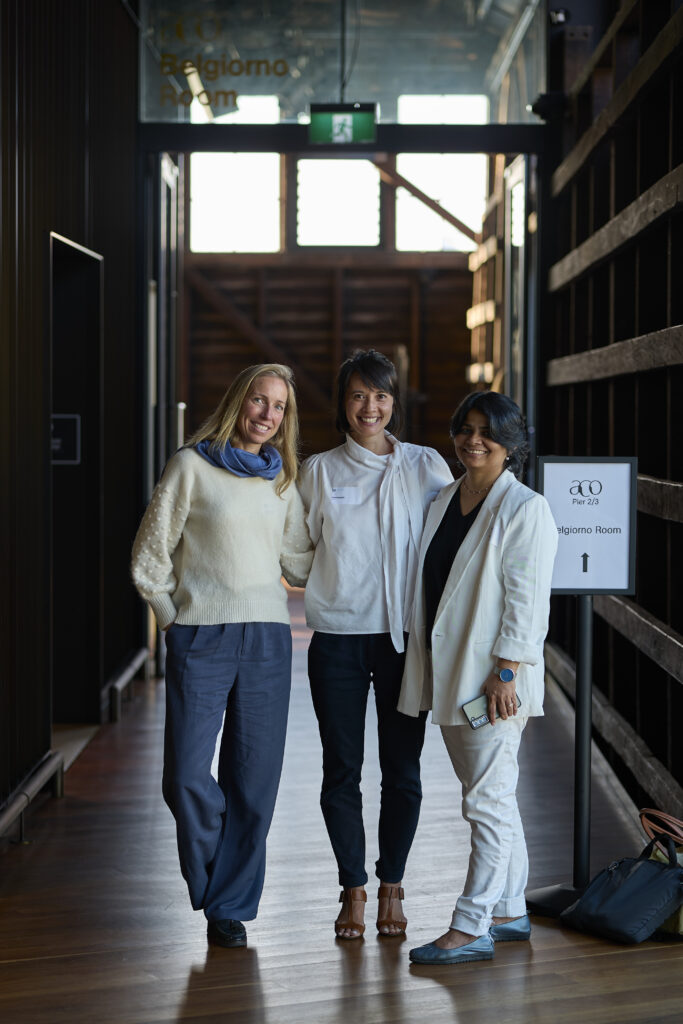When Naomi Vowels and her sister, Frances Atkins, were both on maternity leave, they started a side hustle that has since expanded into a rapidly growing company, reaching global markets.
At first, they set out to create personalised children’s books that were meant to be for their own children. But then, they got requests from other people, asking them to create books for their children as well.
“So, what we decided was, for every book that we sold or that was purchased, we would donate a percentage to a children’s literacy program,” Vowels tells Women’s Agenda.
Then, after a while, corporate customers emerged to inquire about the sister’s children’s books in order to appeal to other child-focused brands.
“They were ordering from us in bulk, and they’d use the books as marketing tools,” says Vowels, noting that these customers would send the books to influencers along with other child-focused products, such as baby formula.
“At the time, the sisters were thinking “this is really cool that these large companies are coming to us, a female-led business, and they’re also making impact through us [by] donating to children’s literacy foundations,” says Vowels.
That’s essentially where the idea for their business started. The pair realised that there was a need for a service that allowed companies to easily find good businesses to buy from, that would also create positive social or environmental impact through ethical practices.
Their business, givvable, is an AI-powered platform that automates due diligence for supplier and supply chain sustainability.
Proudly family and female-founded, it employs robust Data & AI Models to scan over 2,500 sources across diverse sustainability & ESG categories. This enables organisations to search, screen, and track verified sustainability initiatives of suppliers, ensuring transparency and accountability throughout the supply chain.
Starting out in Australia, Vowels says the pair heard time and again about companies who were wanting to work with Indigenous businesses or women-led businesses, or other socially and environmentally friendly brands but just didn’t know where to find them or how to verify that the businesses were truly sustainable.

Reaching targets with sustainable business practices
Going back in time, even just four or five years ago, Vowels says that sustainability wouldn’t have been seen as a priority for many companies out there. Rather, these companies might have viewed sustainable practices as a “favour” or a nice-to-have.
“It’s a new concept for companies,” she says. “They’ve been used to doing due diligence on their suppliers and their partners from a credit risk perspective, from a reputational risk perspective, from a legal perspective, but doing it from a sustainability perspective is something that was, and still is, a relatively new concept.”
Now, oftentimes there are mandated regulations or reporting requirements surrounding sustainable practices, but Vowels also says “there is a very strong link between [a business’s] supplier sustainability performance and [their] organisation sustainability performance”.
Vowels wishes more businesses understood the multitude of benefits surrounding sustainable practices, including meeting targets such as reaching net zero, a social procurement target or even DEI goals.
“A big example of that is emissions,” says Vowels. “A lot of companies’ emissions actually lie in their supply chain.”
“If you’re not working with your suppliers and doing the right due diligence on your suppliers, you will almost never be able to achieve a net zero target. Because if 80 per cent of your emissions are related to your suppliers, you know you have to be working with the right ones to get to net zero.”
RISE Accelerator program
Growing beyond Australia, givvable was chosen to take part in the India Australia RISE Accelerator program, which bridges both national markets.
The nine-month program provides support to startups and small- to medium-sized enterprises (SMEs) who are working on innovative technology and are considering overseas expansion between India and Australia.
“Even just our face-to face-time with [Indian companies], learning about the Indian market and how things work there in the sustainability space, in the waste management space, has been really valuable,” says Vowels, who is currently taking part in the program’s circular economy cohort.
“Because [the insight] is coming from organisations that are working on the ground, in those sectors, in those areas that are relevant to us.”

The RISE Accelerator program is delivered by CSIRO, Australia’s national science agency, in partnership with Atal Innovation Mission (AIM), NITI Aayog – the Government of India’s flagship initiative to promote a culture of innovation and entrepreneurship in the country.
Vowels credits the program for opening many doors for them and providing them a platform to market and commercialise in the India market thanks to the tailored support and access to networks they’ve been able to tap into.
In each round, a new cohort of startups and a new cohort of startups and SMEs with solutions to pressing climate and environment challenges – from waste and the circular economy to climate smart agriculture – is supported to help fast-track their innovations in the alternate market.
Applications for the RISE Accelerator program are now open. To see if you’re eligible for the current agritech round or to be notified of future rounds, go to: https://riseaccelerator.org/
Growth is a ‘marathon, not a sprint’
The Indian market– as large as it is– is especially relevant for Givvable’s growth, with new legislation emerging in the country requiring some of India’s largest companies to report on the sustainability of their upstream and downstream value chains.
“They need to do an assessment on 75 per cent of their customers and suppliers,” says Vowels. “So it’s quite wide-ranging. It goes beyond just the suppliers. It also goes to who they’re selling to.”
“For us, that’s quite key legislation. The solutions we have, and the data we have, feed directly into that.”
“We see a really good alignment with the Indian market,” she says, noting that on top of this, jurisdictions such as the EU, Australia, UK and US are all seeing areas of similar legislation for companies, where they’ll need to demonstrate sustainability action.
Alongside this exciting growth, however, Vowels knows that getting to this point as an entrepreneur is “a marathon, not a sprint”.
“It takes time for companies to get to know your company, get to know your value and get to know your value proposition,” she says.
“It’s really important to create long-lasting partnerships [and] long-lasting value for your existing customers.”
“You kind of go into it thinking you’re going to be in and out in a year, but it’s a long-term commitment— the rewards pay off in spades, but yeah, as I said, it’s a marathon, not a sprint.”
Applications for the RISE Accelerator program are now open. To see if you’re eligible for the current agritech round or to be notified of future rounds, go to: https://riseaccelerator.org/

